Air conditioning Condensate for Hydro
Anyone use the condensation from their AC systems for water in their systems?
Here is a link that might be useful: The Greene Tomato
Comments (41)
homehydro
13 years agolast modified: 9 years agoI haven't,
Though coming directly from the air I would imagine it would be much like rain water. Although I doubt it would create enough water. Also I would cleaned and serialized the condenser, water catch basin and drain lines, and keep them cleaned regularly. I would also probably still filter it with an absolute 1 micron water filter because there is no telling what pathogens and/or spores still made it into the water. To me it seems like a lot of work for a little amount of water.willardb3
13 years agolast modified: 9 years agoActually, a 6000 btu/hr unit will make 1-5 lbs/hr of condensate water if your wet-bulb temperature (relative humidity) is high.
Condensate has the properties of distilled water.
Related Professionals
Ashburn Landscape Architects & Landscape Designers · Barrington Hills Landscape Architects & Landscape Designers · Bethlehem Landscape Contractors · Stoughton Landscape Contractors · Westwood Landscape Contractors · Wilmington Landscape Contractors · Crystal Landscape Contractors · Fair Lawn Landscape Contractors · Fort Myers Landscape Contractors · Holland Landscape Contractors · Hollywood Landscape Contractors · Kerman Landscape Contractors · Seven Hills Landscape Contractors · Siloam Springs Landscape Contractors · Ansonia Landscape Contractorshomehydro
13 years agolast modified: 9 years agoNot sure how much water you are needing, but 5 lbs should be about 1/2 gallon. 24 hours = about 12 gallons. I don't think it would be as pure as distilled because the atmosphere surrounding the AC unit still has elements, spores and dust in it as well as many other things. Distilled water is usually made in an enclosed chamber, heated on one side (to vaporize the water), ran through coils into another chamber where the distilled water is then collected.
Any way the condensed water will only be as clean as the collection system you have in place. If there is any algae, bacteria or fungi in/on it it will be in the water. Also any dust at settles in the water and collection area will have elements, microorganisms and even spores in it. you cant really stop dust from settling.
So the water will only be as clean as the collection system. An absolute 1 micron filter will be able to filter out even spores. Just make sure it says Absolute 1 micron, and not 1 micron.
lucas_formulas
13 years agolast modified: 9 years agoI have googled another estimate, that says that a (more standard) unit of 12000 BTU/hr, would condensate some 800gr (0.8 Liter) of water/hr if air humidity is pretty saturated. Well, that's (although only half as much for the double of Btu/h) supposed to be CONDENSATED per hour. But how much is the actual output from the evac tube - is it still and constantly 0.8 Liter/hr? Why (never paying that much attention to the output of condensated water) do I remember any 9000-12000 Btu/h unit with these 1/2" tubes just dripping slightly, seeming not actually having a flow that indicates up to a Liter per hour?!
Conclusion: don't waste any time with all these estimates but collect and measure the actual output under your own climatic conditions and with your own AC(s) instead.
PS: if you collect the condensate properly trough clean tubes, there is not much chance it can be contaminated anywhere in the process. Condensated water isn't exposed to anything (harmful) as any nurtrient soultion could be outdoors. And hence, you surely can use it as it comes (for the purpose). Anyone who grows outdoors should have crossed out the term "sterility" of his/her hydroponic vocabulary already, as it simply is inappropriate and used in a rather inflationary way. Who ever wants to see his/her hydroponic setup as some sort of sterile laboratory, is free to to actually see it as such - I guess. But from my end, I am far from seeing or handling it that way ;-)
homehydro
13 years agolast modified: 9 years agoI grow outside myself, and I know theirs no way to be 100% sterile. I also am not even suggesting the need for lab quality. I just don't see the need to introduce any unwanted contaminants right from the beginning when it's so easily avoided. If one does not care about their water quality, use any water you want because it wont mater, it's not a lab anyway right. You can always figure out what went wrong later.
I prefer to start with good ingredient from the beginning. Sure you could make a cake with spoiled eggs and milk, but don't expect the end results to be the same as if you used fresh ingredient. The nutrient solution is the same. Our AC unit as well as the refrigerator both have water collection basins that are quite dirty with who knows what growing in it, but we don't drink it so it's not really a problem. But it certainly gets dirty, so it's not putrefied distilled quality water. I wouldn't even come close to drinking it, anymore than I would drink out of the toilet.
lucas_formulas
13 years agolast modified: 9 years agoI believe we not cooking nor baking (with this water), right... and we are not considering drinking any condensed AC water or toilet water either, or are we?
The air is full of pathogens and spores, they surround us and the plant kinddom permanently. And so is a hydroponic setup permanently exposed to airborn and even waterborn pathogens. But as we (hopefully have learned since), the ones that might be harmeful for us, aren't necessarily harmful for plants and vis-versa.
What does this mean? Well it truly means that ONLY harmful bacteria and/or spores are an actual threat for plants, all others are most welcome. In fact, how often have you heard about some spores or specific bacteria (not even specifically about the actual danger from condensed water of an AC) have affected or killed plants in some hydroponic setup? Yes, in fact waterborn pathogens really seem to be a minor thread, even here in the tropics they rarely are a problem! In fact they infiltrate and grow by themselves but thrive (and affect plants only) if nutrient temperatures raise above a certain level and/or if there is a lack of oxygen.
I don't know about you, - but while I truly consider highly potential error sources or threats for my plants, I actually don't waste too much time on anything rather speculative. I really don't see what could "grow" in any AC's condensed water that could harm plants. But If ever you have a sure and non-speculative, even better, some scientifically proven evidence of such issue or threat, I might in fact reconsider my point of view. ;-)
homehydro
13 years agolast modified: 9 years ago"I believe we not cooking nor baking (with this water), right... and we are not considering drinking any condensed AC water or toilet water either, or are we? "
I guess you are unable to see the connection and point. When you use bad ingredients (including water) you wind up with a bad product. Bad water in a hydro system = bad quality plants. But I'm sure everyone else easily understands the point.
I understand that you don't care about your water quality at all. That's fine, I am not growing your plants. With all the money that one would spend testing every gallon of water to be 100% NOT speculative as to what is/could be in the water, they could have bought 10 filtration systems and been sure there was nothing to worry about. Then they are Not being just speculative. The only way not to be speculative is to have it tested, each and every time you add it, but that's a waist of time and money.
I am not going to waist my time to post links to prove my point about water quality and possible problems for your benefit. I really don't care what water you choose to use. It's simply common knowledge, as well as a well known fact that pathogens, bacteria, algae and fungi can all be present any water supply. Even when it comes from the tap and the city treated water supply. But again you would need to have it tested to know for sure witch ones were in it, or you are just being speculative that there is nothing harmful in it, and wont multiply and become something to worry about.
Sure not every microorganism is actually harmful to plants, in fact some are even beneficial to them. But unless you send a sample to the lab for testing there is no way to know what's exactly in the water supply. Even if a bad microorganism is not in sufficient numbers to harm a healthy plant, it can still multiply in the nutrient reservoir. Especially when given food (nutrients) and later be in sufficient numbers and then become a problem. And yes temperature and dissolved oxygen levels play a part in how fast both good, and bad microorganisms multiply in the system. But unless you have it tested, what was not a problem today, may be a problem in a week. And your simply being speculative unless you have it tested.
So sure you can pretend that there is nothing bad in the water because you don't want to be speculative, and don't have the resources to send samples to a lab to actually find out for sure. But there is just no reason that I can see to tempt fate by simply not caring what you introduce into your system in the first place, unless you don't really care about the plants that much. Especially when all you need to do is filter it. Even rain water can contain acid rain. Rainwater can even contain unwanted microorganisms from a collection or storage system that's not regularly cleaned.
lucas_formulas
13 years agolast modified: 9 years agoI simply don't believe that condensated water, without any nutrient or mineral content , without any organic substances -and on top of that circulating under UV deprivation will hold or grow any bacteria or else. It is as simple as that, isn't it?
I can imagine plenty of water sources that are a hundred times more exposed and are simply used as they come.
homehydro
13 years agolast modified: 9 years ago"I simply don't believe that condensated water, without any nutrient or mineral content"
If the collection system is not regularly cleaned, material builds up, weather it's dust, bugs, leaves or any other organic material. That provides the food source. As I have stressed over and over again, if the water collection system is kept clean these wont build up.
"and on top of that circulating under UV deprivation will hold or grow any bacteria or else"
Actually UV deprivation (lack of UV) is a benefit to bacteria and fungi. Commercial operations use UV light to control disease to the root systems. It's also used in drinking water purification systems (mostly for well water, and rain water storage) for the same exact reason. If you are thinking of lack of light, AC units are not light proof. They were not designed that way, they were designed to allow airflow, that means lots of holes for the air to pass through, light also passes through these holes. These holes also allow organic material to collect in the water collection basin. They also allow evaporation of the collected water from the condenser. Even if they were light proof that would only prevent algae growth. Bacteria and fungi don't need light to grow. Not to mention that the warm temps provide expedited growth.
wordwiz
13 years agolast modified: 9 years agoDuh, the last time I checked, plants grown in a dirt garden, or acres of plants, seem to do fine with rain - yes rain - water. And the air the drops fall though and collect bits and pieces from on their way to the ground is full of all kinds of crap. But growers seem able to provide a steady food supply.
You all seem to be sweating the small stuff, perhaps just for the sake of an argument?
I'm not a big fan of city water but if my 1000 sq. ft. garden goes without rain for two weeks in the middle of summer with sunny days and temps in the 90s - yeah, I'm gonna turn on the faucet if I don't have enough rain water. Besides, after that amount of time, the rain barrels will likely have algae in it.
YMMV,
Mike
homehydro
13 years agolast modified: 9 years agoWell I'm not sweating anything, I wouldn't use condensed water from an AC unit in the first place. It would never produce enough water for me, and with all the money I would save from not running it 24/7 I can easily go down and buy all the bottled water I needed. My point is to simply bring up possible problems for anyone that wants to give it a try. It's up to them to decide if it's feasible.
I never meant to say that some rain water wont be able grow plants, simply that not all rain water (especially depending on how it's collected and stored) is not the same water quality. You could literally take any water add a bunch of bad things to it and still be able to grow plants. Is that what the point is? Or is the point that the water quality makes no difference to the plants, they will grow perfect no mater whats in the water you use. If so, as I mentioned earlier you can use any water you want, and figure out what went wrong later.
Sure I don't filter the water we use on the outside soil plants, that would require me to filter thousands of gallons of water weekly. Even though we have very poor water quality from the outside hose, that is what I water the outside soil plants with. That doesn't mean they wouldn't do better with a better water quality, just that I am not going to go to the trouble and expense to make that much of it. But for the 30-40 gallons that I need for the hydroponic systems it's very easy to use a good filtered water. I am not going to start using a poor quality water just because. I use RO water but If I needed to I would go down to the home improvement store and get a good filtration system for about $60-$80. I pay more than that just for the nutrients. My systems are not perfect, but I am always aiming to make them better. I just don't see how you can strive for better plants, when you don't care about your water quality.
lucas_formulas
13 years agolast modified: 9 years agoNo way to claim that I am careless I have never said or insinuate that. And I do not appreciate from anyone trying to bend and distort my words in such ways, homehydro.
No bifurcation is necessary either, as there are in fact more than 2 attitudes and a few ways between being just careless with water and clearly overdoing it. And in fact actual practice for most of us lays exactly between those extremes.
Anyway, I agree with Wordwiz about rain water - why applying two standards here? Rain water quality is extremely dependant on your location, rain picks up much more nutrients and contaminants through dust particles, than people generally think. And yet it is generally considered clean and good as it comes. And furthermore, why one distinct and meticulous standard for hydroponics and simply "opening the tap water faucet" for soil culture?
Right, from my understanding, hydroponic culture needs more care indeed and in some case a different "water hygiene" - but then again there is no way I would think that there is something sacred about it -, nor would I catch some hydro-hygiene disorder for the sake of it. ;-)
PS: comparing anti bacterial high energy UV treatment with UV from sunlight is what I call a bad analogy and claiming that two situations are highly similar when they simply aren't. Use reverse logic to cover it up, and you have a nice for the sake of arguing-, but fallacious argument.
Same for fungi or algae, they aren't necessarily a threat. Especially fungi that endanger plants, actually and typically provide from (similar) plant sources, or specific hosts while spores or fungi from other sources are not likely to affect any plants. In the best case, if not neutral they could even be beneficial. The "final destination" of any water and the actual environment where plants are grown is what matters most.
From my understanding the question here is simply: what procedure and handling would be an actual improvement and what would indeed be a necessary safety measure - versus no actual difference at all but simply overdoing and wasting time and money with water hygiene, and applying two standards on top of it.
Better safe than sorry, said the farmer's daughter and cooked the gammon in donkey's milk ;-)
homehydro
13 years agolast modified: 9 years ago"No way to claim that I am careless I have never said or insinuate that. And I do not appreciate from anyone trying to bend and distort my words in such ways, homehydro."
You can call it anything you want, that does not change the outcome. I am also not singling anyone out with any statement, just speaking in general. But if the shoe fits, well that's not my problem. What one may call careless or extreme does not mean that everyone else MUST agree. I certainly don't feel that simply filtering my water is an EXTREME measure. It's a simple procedure that allows me not to need to SPECULATE what might be in it. I have good vision but I cant tell if there are microorganisms, chemicals, pathogens, fungi or bacteria is in a water supply simply by looking at it, and no one else can either. So to simply say OH don't worry about it, it looks fine, and taking no measures to find out or protect against anything, is yes what I would call careless.
"Rain water quality is extremely dependant on your location, rain picks up much more nutrients and contaminants through dust particles, than people generally think. And yet it is generally considered clean and good as it comes. And furthermore, why one distinct and meticulous standard for hydroponics and simply "opening the tap water faucet" for soil culture?"
Have I not referred to the collection and storage as the biggest factors in in rainwater quality. Not everyone collect's their rainwater exactly the same. Perhaps an example is need for some people to see the picture.
Lets say your rain water comes from the roof and gutter system around your house. Now thought all the years leaves, bugs, bird poop and even a dead squeal or bird winds up in the gutters. This all decomposes with all kinds of microorganisms pathogens, fungi or bacteria growing in it. Now it rains and all these microorganisms pathogens, fungi and bacteria get washed down into your rainwater barrel. I guess some would say it's safe to just assume that there is nothing harmful to your plants in it. I would say that is just SPECULATINING, and careless because they don't really know what's in the water in the first place.
"comparing anti bacterial high energy UV treatment with UV from sunlight is what I call a bad analogy"
As usual you did not understand the post. I was not in any way comparing the two. I was unsure what you were referring to as UV because in the context of what you wrote did not make any scene. I gave two separate examples, one was referring to using UV lights, or in the context you posted a lack of using UV lights. A lack of UV lights wont protect against any disease. The other was simply referring to what would be the case if you were thinking of (lack of sunlight), and that also wont protect against any disease, just algae.
"Same for fungi or algae, they aren't necessarily a threat. Especially fungi that endanger plants, actually and typically provide from (similar) plant sources, or specific hosts while spores or fungi from other sources are not likely to affect any plants. In the best case, if not neutral they could even be beneficial. The "final destination" of any water and the actual environment where plants are grown is what matters most."
I never said that all bacteria and fungi were bad, in fact I said the polar opposite. What I have said is that unless you have the water supply tested you wont actually know if it contains good ones or bad ones. You simply cant look at it and make that determination, and to just assume it only contains good ones is purely SPECULATIVE. If one would truly rather be safe than sorry, they would not have a problem filtering the water in the first place. I simply don't understand why that's such a difficult concept to understand.
P.S. There is only 1 standard (as I already explained), suggesting otherwise just shows that you don't understand what I have said. There is only one standard, the only difference is in practicality. Most people grow hydroponically to improve on what they do in soil, not to get the same results.
hardclay7a
13 years agolast modified: 9 years agoI considered using evaporator drain water (aka AC condensate) till I realized It would take a year to accumulate enough water to run my system for two weeks. Although AC units do pick up dust, mold, fungi, etc., this water probably has far less mineral hardness, chlorine, fluoride, Etc. than your tap water, mine comes with a free dose of calcium. I may try rain water when I find time to clean my gutters. Considering the ingredients I use to make the compost for my soil garden I don't believe surgically sterile water is necessary or practical.
homehydro
13 years agolast modified: 9 years ago"Considering the ingredients I use to make the compost for my soil garden I don't believe surgically sterile water is necessary or practical."
There are thousands and thousands of diseases and pathogens that plants are susceptible to getting, some plants more than others, as well as regional specific problems. Soil born, water born, pest infestations, fungi. The fact is compost and soil are not free of these things. The trick is to have much more beneficial things in the soil than harmful ones, that is what keeps the harmful ones from multiplying out of control. Just because your plants grow well does not mean that harmful contaminants are not present, just that they have not shown signs of being out of control yet. And the more healthy a plant is in the first place the better they can resist diseases. Also a plant can be having a disease problem well before you ever see signs of it.
Hydroponic systems are no different. Just because you are not using soil does not mean that they are exempt from getting any diseases, even soil born diseases. They can acquire soil born diseases in many ways. They can get them from the water supply, transferred from pest into a hydro system, contaminated plants that were started in soil then transferred into a hydro system, from people and animals, even wind blown dust, leaves etc. that settles on the plants and/or growing medium. In short, hydroponic systems can get soil born diseases from any organic mater that comes in contact with the water supply, the plants and even the growing medium, as well as pests.
Nobody ever thinks it's necessary until they have a problem (and actualy figured out what it is). I'm not suggesting ordering sterilized water from a hospital, but for some people the purchase of a water filter is simply impracticable. That does not make it any less important. I cant afford the dental work I need, but that doesn't make it go away, luckily it doesn't hurt yet.
homehydro
13 years agolast modified: 9 years agoP.S. Here are a few articles about water and nutrients by Dr. Lynette Morgan.
http://www.maximumyield.com/article_sh_db.php?articleID=485&submit=Go
http://www.maximumyield.com/article_sh_db.php?articleID=146&submit=Go
http://www.maximumyield.com/article_sh_db.php?articleID=154&submit=Go
lucas_formulas
13 years agolast modified: 9 years ago"There are thousands and thousands of diseases and pathogens that plants are susceptible to getting..."
Don't anyone try to tell nor teach me anything about pathogens, pests and deceases, I am fighting dozens of them and often simply put up with some, since over 10 years in tropical climate. I even have had whole pepper fields infested with fruit fly larva. In winter with dropping temperatures to "ideal", the whole area gets INFESTED with mildew(s) you simply can't fight because it spreads all over the place for several month.
And yes, name it we have it and this armada either comes with the wind, with monsoon, or with dropping temperatures, even with rain drops trickling down from bamboo leaves. In too many ways to mention, "unwanted cultures" come to a visit. And yet to get from dormant over active to most fatal, they "fortunately" need certain conditions, a preferred host or other parameters. There are always some specific conditions needed, otherwise plant's wouldn't probably survive them. In addition plants have learned to fight them and get resistant -and consequently pathogens have learned to some extend to strike when plants are weakest or when chances for success are best.
And there you have the exact reason why I wouldn't bother filtering my condensed water from an AC. Because the very next hour, my nicely filtered and nearly sterile water could be full of pathogens again, in fact as soon as it leaves the "laboratory glassware" and reaches what I called its final destination earlier, which in fact is fully exposed to NATURE. And in fact to some only half predictable and half chaotic habitat I can merely control to some extend.
You can't in fact fully control water (or a nutrient solution) nor plant life, that is somehow exposed to heat, wind, rain and dust. Hence it is actually irrational thinking to aim for exaggerated water hygiene with any outdoor culture, including hydroponics. Nearly as irrational as trying to tidy up a forest or a jungle before a nearing Typhoon! LOL
homehydro
13 years agolast modified: 9 years agoPerhaps you could do more to protect your systems from contamination from the elements, instead of just throwing your hands in the air and saying I give up, it doesn't really matter anyway. There is always a way (provided you have the will and funds). Perhaps building your systems with these things in mind will help your situation, but just giving up wont help at all. I guess if hydroponics in your neck of the woods is so difficult and non productive (compared to soil) because of the environment I may be as frustrated as well. Perhaps you might try to take things inside where you would have more control.
But in the long run you still cant get away from the fact that if you had better control of the environmental conditions you would be able to have better crops. That includes everything like the water supply, heat, humidity, pest and pathogen management, light and anything else you can think of. There are many people in the world that have much more control over their growing environment than what you have. They should be allowed to decide for themselves what resources work best in their situation to get the better crops they are striving for. There is no reason that they should not try to do better because you cant.
Personally I try to build my systems with the environment in mind to start with. We get about 3-4 inches of rain a year, so you can hardly compare what works here, and what may be a waist of time (in your opinion) there. You should not assume just because something might not be right for you, it wont be right for anyone else in the world either. We don't get all the problems that you apparently do. My biggest environmental issues are wind and heat.
So is it wrong for me to post my experiences (even if they are not yours), and let who ever reads them to decide what's right for them. I THINK NOT.
willardb3
13 years agolast modified: 9 years agoA/C evaporators all have filters before the coil and are constantly wetted if the unit works.
This pathogen in condensate argument is spurious.
homehydro
13 years agolast modified: 9 years agoI was under the impression that we were talking about regular AC units, not evaporate coolers (aka: swamp coolers). The AC units that we have owned never had a filter anywhere (well probably inline filters). I would take the cover off the window AC unit I have in the garage and take pictures to show where the water collect's, except I have no clue how to post the pics. I am not going to upload them to a alternate site then post the link to them in the post. It's just ridicules to need to do it in such a round-about way.
But for anyone who a window AC unit just look in through the slats on the sides of the unit. Look at the inside bottom of it, and if it's been on for a while allowing water to build up you will literally be able to see the water collecting at the bottom. And if you stand back a little and look closely at the sides you will likely be able to see water spraying up and out of these slats. I had my window AC unit sitting in my bedroom window (because it's the hottest room in the house)and I watched this every day all summer long. Some units will have a tube coming out the bottom. This is nothing more than an overflow tube, it is not coming from some sealed area of the unit.
Large whole house AC units work exactly the same way, weather it is mounted on the roof or by the side of the house. For those who don't have an AC unit, try checking the water collection basin on your refrigerators. If you are not sure where it is, just take the cover off. It will be right in front, at the very bottom of the refrigerator on the outside. Once you have it off, there should be a tray that slides out. That is the water collection basin, just see how clean you think it is. Ours usually has some sort of black mold in it among other things.
P.S. I have posted a link although the diagrams don't really show the water collection basin (where the water collect's) It is a top view of a window AC unit and the water collect's on the bottom). But if this forum had a more user friendly way to post images I would be happy to post some.
Here is a link that might be useful: How Air Conditioners Work
hardclay7a
13 years agolast modified: 9 years agoSorry, I just can't justify the cost of running several A/C units year round for several pints of water when I am using it in gallons. This gets even more impractical in the winter when I am heating my house with a wood stove with a cast iron kettle of water on top to put moisture into the air. My growing conditions may not be perfect, but perfection is a direction not a place.
lucas_formulas
13 years agolast modified: 9 years ago>>>I guess if hydroponics in your neck of the woods is so difficult and non productive (compared to soil) because of the environment I may be as frustrated as well. Perhaps you might try to take things inside where you would have more control.What makes you come to such assumptions anyway? Have I explicitly or implicitly said that hydroponics is difficult or non-productive compared to soil? Have I said that I am frustrated? No for all. I've said that I am fighting - I haven't said that i am loosing the fight LOL! Obviously, the conditions for soil culture are more difficult to control and manage than with hydro. Which is the reason why I switched to hydroponics in the first place. To be more unequivocal, I'd describe the situation as follows: I take profit from a 365 days growing season but that comes at a price. Simply because not only my favourite crops are growing perfectly well and most quickly in the tropics, but "other unwanted things" simply do as well. Moving hydroponics inside at the tropics, that would be a bit like moving a roofed wicker beach chair inside, wouldn't it?
Back to "AC-water", it actually draws down to one sentence: if the output is actually poor and if you worry that much about "contamination" that you push it to filter this water again, it simply is not worth it! If you are truly interested in "cheap" condensed and demineralized water, build a Solar Water Condenser instead and keep it clean.
Now, one more word about what I am saying and stating in general, perhaps recommending versus what you do in this discussion. You insist in the same way than I do, don't you? And because you have that nice filter, you recommend it, right? Looks to me if you tend to use a double standard in your own favour here.
There is nothing wrong with your experiences and thoughts, but with mine there's nothing wrong either I guess. Some of it is perhaps more rational, some perhaps irrational in the mind of the beholder. If you state the obvious, that who ever reads them has to decide what's right for them, it concerns everything that is said, - yours as well, doesn't it? So, no need at all to state the obvious as an argument here... ;-)
widespreadpanic
Original Author13 years agolast modified: 9 years agoOkay not to be rude but lots of the replies/arguments were messages that where TLDR (too long didn't read)
What I want to know is could I, should I, put a 50 gallon drum under my ac condensate line to collect the water.
I use rain water collected from my roof.
I use a chiller and keep my res. temp at 67 degrees.
I'm short on rain water and my municipal beach water was tested by NC state and said to have bordeline toxic levels of certain elements.
Here is a link that might be useful: The Greene Tomato
bbrush
13 years agolast modified: 9 years agoI could only dream of having water as pure as airconditioning condensation!
widespreadpanic try letting your tap water sit in a open tank for a few days and run a test on a few sample plants, chlorine evaporates out when left sitting, unless it is the more stable chloramine.
lucas_formulas
13 years agolast modified: 9 years agoWell, widespreadpanic, in case of too much TLDR (too long didn't read), you have two choices: DOC (draw your own conclusions) or wait for a C.T.O. (clearing third opinion. Anyway, you have to take R.O.D., responsibility for your own decisions ;-)
PS:no need for letting sit any condesation, as it has any chlorine left.
homehydro
13 years agolast modified: 9 years ago"What makes you come to such assumptions anyway? Have I explicitly or implicitly said that hydroponics is difficult or non-productive compared to soil? Have I said that I am frustrated? No for all. I've said that I am fighting - I haven't said that i am loosing the fight LOL!"
You have stated that it's so difficult to keep contaminants out of your water supply, that you see no reason to even try anymore. If that is winning the fight, I would hate to see what loosing it would be like.
"Moving hydroponics inside at the tropics, that would be a bit like moving a roofed wicker beach chair inside, wouldn't it? "
well I am not really sure, does not make much scene to me. But my reasoning was, if rain dripping down trees and bamboo all over the place will get into your reservoirs (how ever it gets in), and because apparently there is no possible way to tighten things up to help prevent this. Then moving the whole thing inside would prevent that from happening. But again, I don't live where you do and it may just be that it even rains indoors where you live. It wasn't an order, just a possible suggestion that might help your situation.
"You insist in the same way than I do, don't you?"
No I don't approach it that way. I post what I think, my experiences, what I know, and let the readers decide what makes scene to them. I expect that others will do the same also. The difference is, I don't try to put others down for no reason and just demand that they take my advice. It's fine to have a different opinion and experiences, it's all in the way you respond. And yes when I am attacked I will attack back, not just lie down and die like you expect me to do.
If you cant afford a filter don't use one. If you don't think water quality maters, use any water you want (as I have said 3 times now). If you think water quality maters but cant afford a filter, try other options, rather than just giving up. Not everybody has the same resources available to them, that is a decision they need to make for themselves.
The one thing that you keep demanding is people just believe that there is never anything in a water supply that will ever be harmful to plants, so there is no reason whatsoever to bother worrying about it. You just call that SPECULATING. When the fact is you are just SPECULATING the other way. Fact is unless you have it tested you wont know for sure. You can SPECULATE either way, or you can do something about it and find out for sure. That's a fact, and has been my point all along. For my money preventive maintenance is a much better and reasonable approach, than not worrying about it and just dealing with the possible consequences later when it's to late.
homehydro
13 years agolast modified: 9 years ago"What I want to know is could I, should I, put a 50 gallon drum under my ac condensate line to collect the water."
You can but it will probably be a year before you ever get that much water. If you open the AC unit and tilt the water collection basin to the side with the overflow tube you probably will get a lot more water. If I had to guess I would say between 60 and 80 present of the water just evaporates within the AC unit. Mostly because of the heat, but it also has a big fan circulating hot air directly on the water as it forms. Simply stick a bucket under it and see how much you actually get.
grizzman
13 years agolast modified: 9 years agoRun a second tap line into your current collection bucket attached to your A/C condensate line. No need for a second bucket.
For those of you not familiar with the area, he's probably getting a gallon or so a day with the temperatures and humidity here. Admittedly I'm a couple hours West of the coast, but my A/C easily cranks out a gallon a day.
the whole pathogen concern is ill founded. We're talking molds, fungus, and bacteria. None of these are likely to infiltrate the plants root system and work there way into your fruit. If you were growing a root crop, maybe I'd be more concerned. But that's a big maybe.homehydro
13 years agolast modified: 9 years ago"the whole pathogen concern is ill founded. We're talking molds, fungus, and bacteria. None of these are likely to infiltrate the plants root system and work there way into your fruit. If you were growing a root crop, maybe I'd be more concerned. But that's a big maybe."
I was not thinking that the pathogens, bacteria and fungi would work there way into the fruit. I would be concerned that they could cause damage to the plants in general. As I mentioned there are thousands upon thousands of types, all of them affect the plants in different ways. And some can affect one type of plant but not another. Some will damage roots (sure you are not eating the roots), that damage in turn affects the growth of the foliage and fruit, and basically the overall health of the plants.
I personally have read enough (from creditable sources) to know that water quality is important. I also know that they can be causing damage even if you don't physically see signs. I also know that most gardeners usually just blame problems on either the nutrients or pests, simply because that is the most obvious sources of problems. But I will put it this way, large commercial hydroponic operations use either UV or Ozone treatments to control pathogen, bacteria and fungi populations for there nutrient solutions, and they started with water that was filtered and/or treated chemically in the first place. Why? Because they know how important water quality is, and they have money riding on there crops.
grizzman
13 years agolast modified: 9 years agoCommercial growers do that because they have a lot more at stake than home gardeners if they lose a crop. In commercial setups, almost all the water is pooled in a common reservoir, so the damage from a disease outbreak will be exponentially larger. home gardeners, on the other hand, often have multiple systems each with their own reservoirs, so even if a plant does catch something it is less likely to be caught by all the plants.
I understand your concern for water quality, but remember that most of the pathogens that damage crops are normally soil borne viruses/bacteria and not commonly found floating around in the air. You can't lump all pathogens into one category.hell, probably 99% of them are of no consequence to plants or animals. You're much more likely to contaminate your water supply by transplanting soil grown plants into the system than using unfiltered condensate water.
While I can't say with 100% certainty your plants will never be affected by an air borne pathogen, It's highly unlikely to happen. If you are concerned, then by all means sterilize it. simply dump in enough chlorine to kill anything that might be living in there(a swimming pool chlorine test kit will help), then aerate it for a few days to evaporate the chlorine.willardb3
13 years agolast modified: 9 years agoIf there are pathogens in the air where your plants surely grow, there are the same pathogens in the a/c condensate-both are doubtful.
Your understanding of a/c units is very circumscribed; there are filters on every evaporator I have seen and, if you don't have one, you should and it should be cleaned frequently.
Are you cleaning the pathogens out of the air presently? Do you run a 1 micron filter on the air? A fan to run this kind of filter for the air will use as much or more HP than the a/c unit.
homehydro
13 years agolast modified: 9 years agoYes treating your water with chlorine will kill anything as well, although I prefer not to use any more chemicals than I need to and I have filtered water.
"Are you cleaning the pathogens out of the air presently? Do you run a 1 micron filter on the air? "
No not at all, for me that would be very unrealistic. I don't think there would be any circumstances that I would even consider it. And even though airborne pathogens are present, it's not like if one gets in the reservoir your plants automatically get sick. They first need to grow and multiply into large numbers before they become a problem. By filtering the water I simply protect from starting with them in the water where they will grow and multiply. But that's not all. I build my systems as air tight as I can, not just for pathogens, but also to help keep the warm air temperatures from getting to the nutrient solution and root zones.
I also change my nutrient solution every two weeks or so. I also wash out the reservoir (takes about 10 min), as well as clean the pump and filters (takes about 10 min). So although there is no doubt that there are some pathogens in the nutrient solution, I take precautions so they don't multiply into large enough numbers to do much damage. Using filtered (or chemically treated) water wont stop them from getting into the hydroponic system, but at least you can be sure you are not starting with them in the system right from the beginning. That just helps keep them from getting a head start.
lucas_formulas
13 years agolast modified: 9 years agoThis goes far beyond usability of AC- condensate for some time now. But - the more it goes off track the more misconceptions related to Hydroponics seem to infiltrate somehow!
First of all, I never ever recommend the use of any chlorine to disinfect any water that is supposed to serve for a nutrient solution. While some of the Cl actually evaporates when water sits for a while, some will not. If you use the wrong dose, (in the worst case on top of what your water may already contain) you will most certainly inhibit plant growth or even damage your cultures fatally. While Cl is in fact one of the minor trace elements, lower soil only contains as much as an average of 10 ppm. From 0-50 are considered acceptable, 50-100 a maximum and above these, chlorine may inhibit plant growth and gradually become toxic. And yet, up to 20-30 ppm of Cl could in fact be added to a nutrient solution that is based on distilled or RO- water or has total absence of Cl for some reason.
In case you aim for a rather radically sterile or disinfected water or setup, only use hydrogen peroxide for the purpose, - as it completely splits up in hydrogen and oxygen (gas) rapidly, after having done its job. It kills everything though, including some beneficial bacteria or fungus (like EM or trichoderma and many others) but does not harm any plants.
The actual and in fact sole purpose of UV-treatment or water ozonification (in smaller or larger set-ups) is to prevent build-up of bacterial- and decomposition related particles within a running system. The base water that is/was used, or whatever may be introduced by it, doesn't actually play here. It's more like (figuratively speaking) a "inside job". Also, fine particles that could only be filtered out by high pressure filtering, will bind in such way they can be filtered out by a much more rudimentary "outline flow filter". This obviously saves money and energy and keeps the system "clean".
And yet, I have visited a number of smaller and bigger scaled hydroponic farms, that don't use any products, nor such systems (as UV or Ozone) and actually just have some piece of nylon cloth at the final outlet tube as a sole filter. And yet they grow vigourous, great looking and healthy crops with every single rotation. I've even be present with a large scale cleaning procedure of NFT channels. They were definitely just scrubbed with running water, nothing more nothing less.
And in fact - exactly so do I! ;-)Now about building or keeping a system airtight (as suggested by homehydro) and quoted: "not just for pathogens, but also to help keep the warm air temperatures from getting to the nutrient solution and root zones"
Well, here I cannot disagree more, as this part is not consistent with anything I've seen nor heard, nor can imagine. First of all heat gets consumed by evaporation, - while "air tightness" only prevents evaporation. A reverse effect is much more likely to take place! "Air-tightness" may also promote anaerobic bacterial activity and multiplication, and may actually have a reverse effect for this matter. But most importantly how would one be able to adequately aerate and oxygenate a root zone, nutrients, or any other vital space inside the system, when it is supposed to be "as airtight as possible"?!Besides, if using so called "organic nutrients", bacterial activity in media and root zone, as well as direct exposure to the atmosphere is strictly necessary and required. Otherwise the nitrates that aren't readily available yet but need to be decomposed through a "natural" process, which is nothing else as a bacterial decomposition, - couldn't ever take place. Hence these nutrients wouldn't be available and an imbalance would be an ineviatble consequence!
Same for chitosan, trichoderma and EM inoculation of hydroponic systems (even-though less commonly used or known without a doubt). Any inoculation would become merely useless if aiming for a sterile system, respectively taking any measures to make and keep it sterile or even preventing the media from breathing.
Last but not least, the inappropriate and certainly inflationary use of terms like "chemicals". Folks, please get it: any so called nutrients or solutions (even so called organic nutrients partially) are made of chemicals, actually chemical components that provide from energy and raw material consuming chemical industry (while organic nutrients may in fact be produced 'artistically' and in more respect to energy consumption). Thus, adding or not adding "any more chemicals", like calcium chloride doesn't change anything to the very chemical nature of almost any nutrient (solution). In fact, calcium chloride or potassium chloride (why not sodium chloride) are per definition just acceptable components that simply range among other equally "chemical" components COMMONLY used with nutrient making. Pretending or believing otherwise would just contribute to spreading one more "improper terminology" based fallacy. LOL
georgeiii
13 years agolast modified: 9 years agoGuy's, guy's been there done that.
I found that a sniff test will tell how suitable your AC water is for use on your garden. Either medium or Hydroonic.
willardb3
13 years agolast modified: 9 years agoIt turns out that this whole discussion of a/c condensate is spurious and these people just want to hear themselves talk......very boring.
homehydro
13 years agolast modified: 9 years ago"First of all, I never ever recommend the use of any chlorine "
Are you so vain that you think that anything that might be recommend was something that was recommended by you?
As far as I can tell you are only concerned with the misconceptions that you don't agree with, all the rest are just fine.
" If you use the wrong dose, (in the worst case on top of what your water may already contain) you will most certainly inhibit plant growth or even damage your cultures fatally."
Why would you possibly care what might be in the water supply? As far as I can tell you have EXPRESED that there is no need to care what is in the water supply.
"In case you aim for a rather radically sterile or disinfected water or setup, only use hydrogen peroxide for the purpose"
H202 costs money in this country. Any other other chemical would be cheaper. chlorine is much cheaper. I thought you were so concerned with resources you would know that? It would cost me hundreds of dollars to disinfect using H2O2. I can filter it for a fraction of that. Good thing your not my financial adviser.
"The actual and in fact sole purpose of UV-treatment or water ozonification (in smaller or larger set-ups) is to prevent build-up of bacterial- and decomposition related particles within a running system. The base water that is/was used, or whatever may be introduced by it, doesn't actually play here."
Not 'particles', pathogens. Pathogens are basically anything that can do damage to a plant. OK then the people running. Those operations are so stupid that they don't care anything about their initial water supply. Lets say they don't, why would they care about the supply after that? Lucas says there will never be any problems with any water supply. So Lucas says it does not mater what what water you use, you will NEVER have any problems with your water supply.
'It's more like (figuratively speaking) a "inside job". Also, fine particles that could only be filtered out by high pressure filtering, will bind in such way they can be filtered out by a much more rudimentary "outline flow filter". This obviously saves money and energy and keeps the system "clean"."
This is just an attempt to draw attention away from the fact that there is no information in this statement. And just a bunch of junk, with only the hopes of big words to mask the fact that there is no basis for the junk.
"Now about building or keeping a system airtight (as suggested by homehydro) and quoted: "not just for pathogens, but also to help keep the warm air temperatures from getting to the nutrient solution and root zones"
Well, here I cannot disagree more, "this part is not consistent with anything I've seen nor heard, nor can imagin"That's good because I never asked you to imagine anything, nor have I ever cared how you feel, so then it works out just fine.
"And yet, I have visited a number of smaller and bigger scaled hydroponic farms, that don't use any products, nor such systems (as UV or Ozone) and actually just have some piece of nylon cloth at the final outlet tube as a sole filter"
OK, so we should just take your word for it that there is nothing to water quality when many EXPERTS suggest different. OK, I will just believe you because you demand it.
"Same for chitosan, trichoderma and EM inoculation of hydroponic systems (even-though less commonly used or known without a doubt). Any inoculation would become merely useless if aiming for a sterile system, respectively taking any measures to make and keep it sterile or even preventing the media from breathing. "
English please? Gobilty gook does not matter.Anything other than your perception of your systems is considered Lab quality in your opinion. Thanks for the interpretation.
"But most importantly how would one be able to adequately aerate and oxygenate a root zone"
That's because you simply are not aware of how I build my systems, and also the laws of physics. If you had a clue, you would easily understand what I do.
"A reverse effect is much more likely to take place! "Air-tightness" may also promote anaerobic bacterial activity and multiplication, and may actually have a reverse effect for this matter."
This also shows that you have no clue what I am talking about, as well as my designs. You are just SPECULATING as you continually blame others of doing.
"Last but not least, the inappropriate and certainly inflationary use of terms like "chemicals". Folks, please get it: any so called nutrients or solutions (even so called organic nutrients partially) are made of chemicals, actually chemical components"
Yes, So then there is no person that should not be able to pour a bunch of chlorine in their reservoirs without any problems. after all it is a chemical and that is what plants use for food. So Lucas says to put as much as you want in your reservoir because there simply won't be any problems (Lucas says). Hay why not just pour bleach on on your grass, it's just a chemical and Lucas says it wont cause any harm. Why not drink RAID it is just a bunch of chemicals, heck it's probably even good for plants. So heck, suck it down Lucas says, it's just a chemical so what's the problem.
If chlorine is so great just try pouring it on the grass outside and just see if it lives. I know it's one of the CHEMICAL ELEMENTS in a nutrient solution. But in the concentrations that it's in a nutrient solution, it wont kill anything. In concentrations that it will kill, it will do damage to your plants.
"In fact, calcium chloride or potassium chloride (why not sodium chloride) are per definition just acceptable components that simply range among other equally "chemical" components COMMONLY used with nutrient making. Pretending or believing otherwise would just contribute to spreading one more "improper terminology" based fallacy. LOL"
But you are saying that in any concentrations that there is never any problems. If that is the case then why bother worrying about the recipy in the first place. It doesn't matter.
But if it is not a fallacy or misconception that you disagree with then it's just fine. Leave a list of the ones you agree with.
lucas_formulas
13 years agolast modified: 9 years agoNo, no - I haven't ever written nor said anything like that. I have given very, very clear and precise explanations and statements about every single point. They have to be taken as stated and were not meant to be bend nor distorted beyond recognizability by you homehydro. Looks like any further of my comments would have the same fate and misfortune.
Obviously I am not interested in any more verbal contortionism of yours - that's why I better call it a day and have to leave you on your own with that. Have fun with it, though ;-)
homehydro
13 years agolast modified: 9 years ago"No, no - I haven't ever written nor said anything like that. I have given very, very clear and precise explanations and statements about every single point. They have to be taken as stated and were not meant to be bend nor distorted beyond recognizability by you homehydro. "
There is no bending of statments, and the only clear explanation that you have stated is that water quality is of no importance to you, and you simply demand that I just believe you (even though I know better). Also anyone that was concerned with their water quality is accused of trying to create sterile lab conditions, even though that couldn't be farther from the truth.
chriscclay
13 years agolast modified: 9 years agoI plumbed my condensate from my portable A/C unit to my res works great. It helps keep my ec in check while I'm away from the garden. haven't had any problems yet. I keep my coils and filter clean to keep it running at top efficiency. I also disinfect and rinse them off in between crop cycles.
hope this helps
all this arguing is not needed points have been made and can be used if wanted
heatingrepairchicago
9 years agolast modified: 9 years agopretty awesome idea if you are living in a warm climate. for the ones up north it wouldn't work but for a couple months a year. :(
Here is a link that might be useful: Heating Repair Chicago - AC Service
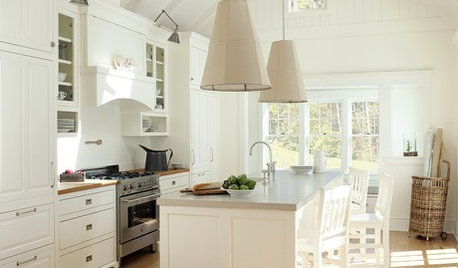
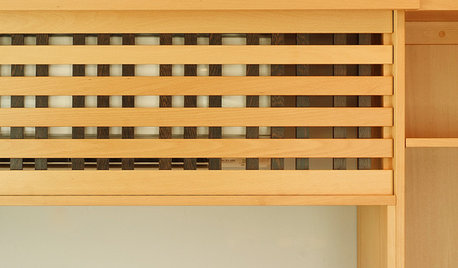
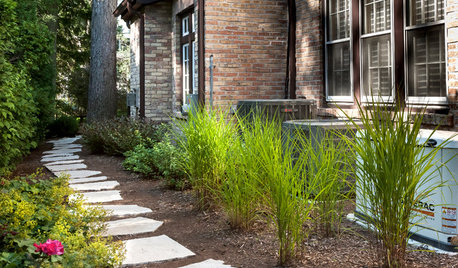
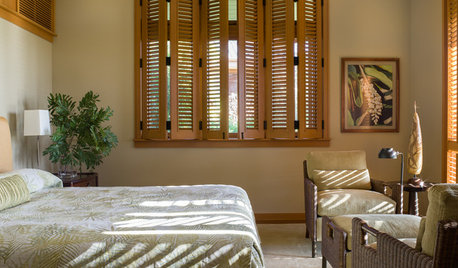

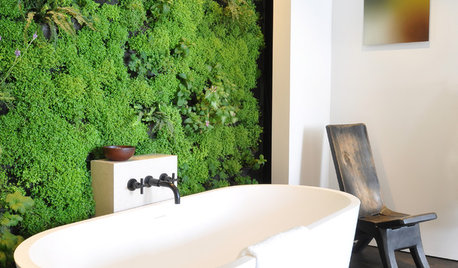
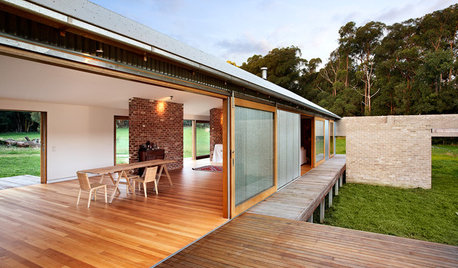
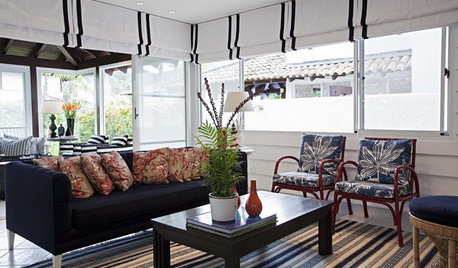
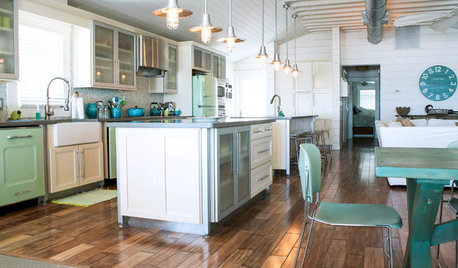








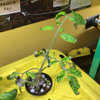
PPP SSS